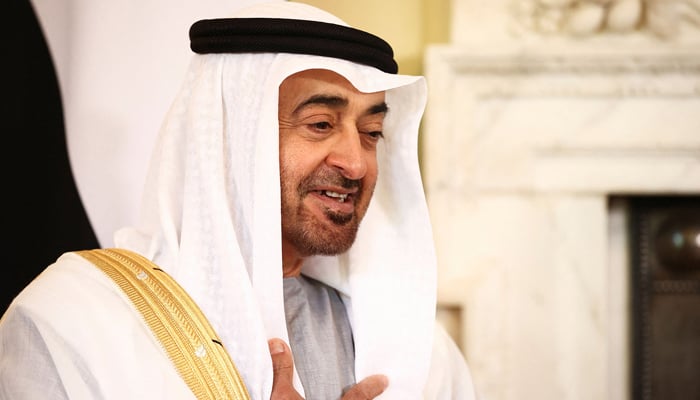Unequal world
Meanwhile, the family that owns Hermes continues to grow, with focus, being on creating generational wealth
A world increasingly divided between the rich and the poor – with the gap widening almost annually – has once again witnessed an astonishing $1.5 trillion increase in the wealth of the top five richest empires. This is no small sum. In fact, for some countries, this sum is bigger than their GDP; for example, Pakistan whose GDP is a paltry $348 billion is among these countries. In a world that wants to switch to renewable energy and phase out of fossil fuels to save the planet from further chaos, the petro-money of the Middle East has put two families from the region among the world’s five richest. The Al Nahyans of Abu Dhabi have topped the 2023 list put out by Bloomberg of family fortunes, with a total worth of $305 billion. The Al Thanis of Qatar also added significantly to this wealth. For the first time in five years, the Waltons of Walmart are no longer the richest group in the world. Meanwhile, the family that owns Hermes continues to grow, with the focus, according to experts, being on creating generational wealth. Unfortunately, the growing influence of the Middle East is not being put to use politically, for example by using its clout as a reminder that the Palestinians have powerful friends. The same is true of Yemen, where children starve as a result of poverty which has built up over the decades and worsened by almost a decade-long war in the country.
The report is a stark reminder of wealth concentration in the hands of a few. If this money earned from oil, fashion design, retail sales, and other areas was spread out more equitably, many would benefit hugely. Inequality in the world is widening, leading to some important questions. Are the world’s riches reserved only for a small number of people? Shouldn’t there be some mechanism to offer more opportunities and a greater division of wealth to the world’s 99 per cent who had a difficult financial year? It is almost impossible to imagine the scale of fortune a few families have amassed. The arrival of the oil-rich Gulf countries on the scene adds in some way to the complications but also depicts a changing world where the West is not necessarily the largest power holder at least in financial terms.
But the list exposes an ugly reality: we live in a space where some can stud their coats with the most precious diamonds while others cannot place a piece of bread on their tables. There is something wrong with a system that allows and even encourages this. Of course, individual families have strategized well to earn their money. But others are not at fault here because they are deliberately kept away from resources that can help them generate income. Such a world is doomed to remain unequal.
-
 Bad Bunny Faces Major Rumour About Personal Life Ahead Of Super Bowl Performance
Bad Bunny Faces Major Rumour About Personal Life Ahead Of Super Bowl Performance -
 Sarah Ferguson’s Links To Jeffrey Epstein Get More Entangled As Expert Talks Of A Testimony Call
Sarah Ferguson’s Links To Jeffrey Epstein Get More Entangled As Expert Talks Of A Testimony Call -
 France Opens Probe Against Former Minister Lang After Epstein File Dump
France Opens Probe Against Former Minister Lang After Epstein File Dump -
 Last Part Of Lil Jon Statement On Son's Death Melts Hearts, Police Suggest Mental Health Issues
Last Part Of Lil Jon Statement On Son's Death Melts Hearts, Police Suggest Mental Health Issues -
 Leonardo DiCaprio's Girlfriend Vittoria Ceretti Given 'greatest Honor Of Her Life'
Leonardo DiCaprio's Girlfriend Vittoria Ceretti Given 'greatest Honor Of Her Life' -
 Beatrice, Eugenie’s Reaction Comes Out After Epstein Files Expose Their Personal Lives Even More
Beatrice, Eugenie’s Reaction Comes Out After Epstein Files Expose Their Personal Lives Even More -
 Will Smith Couldn't Make This Dog Part Of His Family: Here's Why
Will Smith Couldn't Make This Dog Part Of His Family: Here's Why -
 Kylie Jenner In Full Nesting Mode With Timothee Chalamet: ‘Pregnancy No Surprise Now’
Kylie Jenner In Full Nesting Mode With Timothee Chalamet: ‘Pregnancy No Surprise Now’ -
 Laura Dern Reflects On Being Rejected Due To Something She Can't Help
Laura Dern Reflects On Being Rejected Due To Something She Can't Help -
 HBO Axed Naomi Watts's 'Game Of Thrones' Sequel For This Reason
HBO Axed Naomi Watts's 'Game Of Thrones' Sequel For This Reason -
 King Charles' Sandringham Estate Gets 'public Safety Message' After Andrew Move
King Charles' Sandringham Estate Gets 'public Safety Message' After Andrew Move -
 Lewis Capaldi Sends Taylor Swift Sweet Message After 'Opalite' Video Role
Lewis Capaldi Sends Taylor Swift Sweet Message After 'Opalite' Video Role -
 Brooklyn Beckham Plunges Victoria, David Beckham Into Marital Woes: ‘They’re Exhausted As It Seeps Into Marriage
Brooklyn Beckham Plunges Victoria, David Beckham Into Marital Woes: ‘They’re Exhausted As It Seeps Into Marriage -
 Sarah Ferguson Joins Andrew In ‘forcing’ Their Daughters Hand: ‘She Can Lose Everything’
Sarah Ferguson Joins Andrew In ‘forcing’ Their Daughters Hand: ‘She Can Lose Everything’ -
 'Bridgerton' Author Reveals If Actors Will Be Recast In Future Seasons
'Bridgerton' Author Reveals If Actors Will Be Recast In Future Seasons -
 50 Cent Super Bowl Ad Goes Viral
50 Cent Super Bowl Ad Goes Viral




